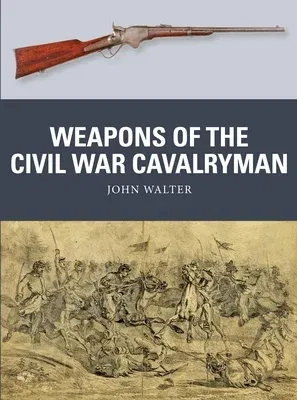Replete with specially commissioned artwork, this lively study
assesses the effectiveness of the various weapons equipping the Civil
War cavalryman and the decisions made concerning the armament of the US
cavalry after 1865.
During the American Civil War, the mounted soldiers fighting on both
sides of the conflict carried a wide array of weapons, from sabers and
lances to carbines, revolvers, and other firearms. Though some sections
of the cavalry placed their trust in the sabre, the advent of viable
breechloading carbines--especially repeaters such as the Spencer--was to
transform warfare within little more than a decade of General Lee's
final surrender at Appomattox. However, output struggled to keep up with
unprecedented demands on manufacturing technology and distribution in
areas where communication was difficult and in states whose primary aim
was to equip their own men rather than contribute to the arming of
Federal or Confederate regiments. In addition, the almost unparalleled
losses of men and equipment ensured that almost any firearm, effectual
or not, was pressed into service. Consequently, the sheer variety of
weaponry carried reflected the mounted soldiers' various roles in
different theaters of operation, but also the availability--or
otherwise--of weapons, notably on the Confederate side.
Fully illustrated, this study assesses the effectiveness of the many
different weapons arming the Civil War cavalryman and analyses the
strengths and weaknesses of the decisions made after 1865 concerning the
armament of the US cavalry.

